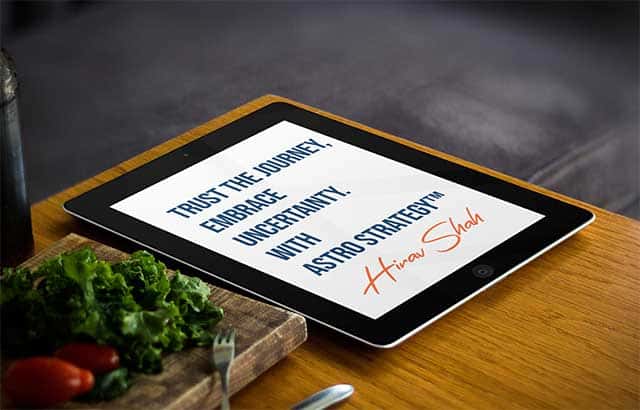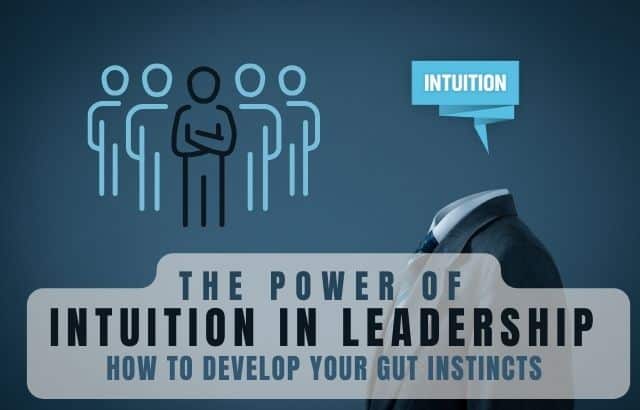Have you ever had a gut feeling that turned out to be right? That’s your intuition at work. Intuition is a natural ability that we all possess, but many of us don’t know how to use it effectively. By understanding the science behind intuition and learning how to harness its power, you can make better decisions and achieve greater success in your personal and professional life.
Leadership qualities are often associated with intuition, the ability to make decisions based on gut feelings and instincts. While intuition is a natural ability, it can be honed and developed through practice and understanding. Effective leaders know how to harness the power of their intuition to make informed decisions and achieve success in both their personal and professional lives. By trusting their instincts and understanding the science behind intuition, leaders can inspire and motivate their teams to reach their full potential.
Table of Contents
What is intuition, and how does it work?
Leadership qualities include the ability to trust one’s intuition. Intuition is a subconscious process that allows us to make quick decisions based on our experiences and knowledge. It’s often described as a “gut feeling” or a “sixth sense.” When faced with a situation, our brain quickly processes all available information and sends a signal to our body, which we experience as a feeling or sensation. Effective leaders learn to interpret these feelings and act accordingly, using their intuition as a valuable tool in decision-making. Trusting one’s intuition is not magic, but rather a natural ability that can be honed and developed over time.
The benefits of trusting your gut.
Trusting your gut can lead to many benefits, including better decision-making, increased confidence, and improved creativity. When you listen to your intuition, you are tapping into your subconscious mind, which has access to a wealth of information and experiences that you may not be consciously aware of. This can help you make more informed decisions and avoid analysis paralysis. Additionally, trusting your gut can help you build confidence in your own abilities and judgment, which can lead to greater success in all areas of your life. Finally, intuition can spark creativity and innovation, as it allows you to think outside the box and consider new possibilities.
How to develop and strengthen your intuition.
Developing and strengthening your intuition takes practice and patience. One way to do this is to pay attention to your body’s physical reactions when making decisions. Notice any feelings of tension or relaxation in your body, as these can be indicators of whether a decision feels right or wrong. Another way to strengthen your intuition is to practice mindfulness and meditation, which can help you tune into your inner voice and quiet your mind. Finally, trust yourself and your instincts, even if they go against conventional wisdom or the opinions of others. Over time, as you listen to and act on your intuition, it will become stronger and more reliable.
The role of intuition in decision-making and problem-solving.
Hirav Shah, a renowned business strategist and astrologer, believes that intuition is a crucial factor in decision-making and problem-solving. While logic and analysis are important, they can only take you so far. According to Shah, intuition can provide valuable insights and perspectives that may not be immediately apparent through rational thought. By tapping into your intuition, you can access your subconscious mind and draw on your past experiences and knowledge to make better decisions. Shah also emphasizes that intuition can help you identify patterns and connections that may not be obvious at first glance, allowing you to solve problems more creatively and effectively.
Balancing intuition with logic and analysis.

Hirav Shah, a renowned business strategist, underlines the importance of balancing intuition with logic and analysis in decision-making. While intuition can offer valuable insights, it should not be solely relied upon as it may not always be accurate. Hirav Shah advises gathering all available information and carefully weighing the pros and cons before making a decision. By combining intuition with logic and analysis, one can make more informed and effective decisions. It is also crucial to remain open to feedback and new information that may challenge initial instincts, while still trusting one’s intuition.
Intuition is a powerful tool that can lead to success in various aspects of life, including business, personal relationships, and decision-making. Intuition is often described as a “gut feeling” or an inner voice that guides us towards a certain decision or course of action.
Trusting your intuition can lead to success in many ways. Here are some examples:
- Improved decision-making: When you trust your intuition, you become more confident in your decision-making ability. You’re able to make decisions quickly and with more clarity, without second-guessing yourself.
- Enhanced creativity: Intuition can be a powerful source of creativity. When you trust your gut, you’re more likely to take risks and explore new ideas, which can lead to breakthroughs in your work or personal life.
- Increased self-awareness: Intuition can also help you become more self-aware. By paying attention to your inner voice and gut feelings, you can better understand your own values, strengths, and weaknesses.
- Better relationships: Intuition can also help you build better relationships with others. When you trust your gut, you’re more likely to make authentic connections with people who share your values and goals.
- Greater resilience: Finally, intuition can help you bounce back from setbacks and challenges. When you trust your gut, you’re better equipped to navigate difficult situations and make the best of them.
Leadership qualities involve a balance of intuition, logic, and critical thinking. While intuition can be a valuable asset, it should not be the sole basis for decision-making. Instead, it should be used in conjunction with logic and critical thinking to make informed and confident choices. By combining these qualities, a leader can effectively navigate complex situations and inspire their team to success.
Final Lines

Hirav Shah, a renowned business strategist and advisor, emphasizes the importance of intuition in effective leadership. He suggests that leaders can develop their intuition by practicing mindfulness, listening to their gut instincts, and being open to new perspectives. By honing their intuition, leaders can make better decisions and navigate complex situations with greater ease.
- Practice mindfulness: Mindfulness practices such as meditation, yoga, or deep breathing can help you cultivate a greater sense of awareness and connection to your inner voice.
- Pay attention to your physical sensations: Notice how your body reacts to different situations. Do you feel tension in your stomach or chest when faced with a particular decision? Does your breathing change when you’re in the presence of certain people? These physical sensations can provide valuable clues about your intuition.
- Reflect on past experiences: Look back on past decisions you’ve made and the role your intuition played in them. Were there times when you ignored your gut instinct and regretted it later? What patterns or themes emerge when you reflect on these experiences?
- Trust your instincts: When faced with a decision, take a moment to tune in to your gut feelings. Pay attention to the first thought or feeling that comes to mind, before your rational mind starts to analyze the situation. Trust that your intuition knows what’s best for you.
- Test your intuition: Once you’ve made a decision based on your intuition, pay attention to the results. Did things turn out as you expected? Use these experiences to refine your intuition and learn to trust it even more in the future.
- Get feedback: Share your intuition with trusted colleagues or mentors and ask for their feedback. This can help you gain additional perspective and refine your intuition over time.
Remember that developing your intuition is an ongoing process that requires patience and practice. By cultivating a greater awareness of your inner voice and trusting your instincts, you can become a more effective and confident leader.










